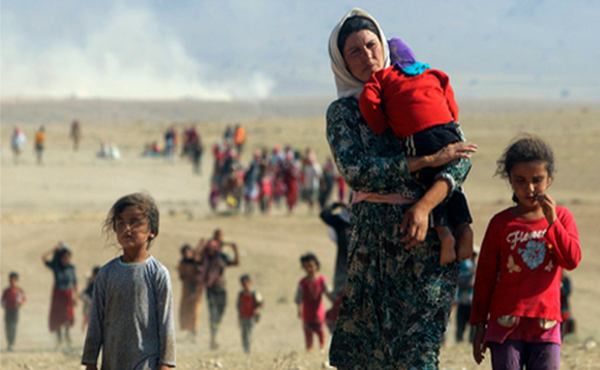Sama reports that the International Yazidi Organization for Genocide Prevention has announced that the mission of the “UNITAD” team in Iraq has ended and is no longer needed. They do not want to hand over evidence and documents of the Yazidi genocide to Iraqi authorities.
Haso Hormi, head of the International Yazidi Organization for Genocide Prevention (IYFPG), told Sama: “We believe that UNITAD’s mission has ended and is no longer needed. After the sixth report to the Security Council on 10/5/2021, we saw that the team began to expand its work and investigate matters unrelated to ISIS victims in Sinjar, such as investigating ISIS financing or the use of chemical weapons by ISIS and other topics. This was a waste of time.”
He also said: “I must clarify from the beginning that as an organization, we have repeatedly requested the United Nations to establish an international court specialized in ISIS crimes. We still support the internationalization of the Yazidi cause, due to the lack of a national law that punishes international crimes. Since the UNITAD team has collected evidence and documents that incriminate ISIS, we requested that this evidence be placed with a neutral party to prevent hacking (information disclosure) and harm to witnesses and victims, as any information theft could become a threat to their lives and social peace in general. This is with our knowledge that UNITAD is hesitant to share collected evidence with Iraqi authorities because they use the death penalty, which is against United Nations policy.”
The head of the Yazidi organization also emphasized that in their reports and statements to the United Nations, they have repeatedly stressed the need to consider the steps after the end of the aforementioned team’s work and the need to benefit from its results to impose justice for the victims. This could be done by referring the case from the Security Council to the International Criminal Court in The Hague or establishing a special international court or a mixed court specialized in ISIS crimes in Iraq and Syria or in Iraq alone.
Hormi reiterated, “We are against handing over genocide evidence and documents to Iraqi authorities because Iraqi law does not cover the criminalization of perpetrators of international crimes. Judicial authorities in Baghdad or Erbil still try ISIS criminals according to anti-terrorism laws. There is much evidence showing corruption, lack of transparency, and oppression in Iraq’s criminal justice system. The government has extended its hand into the work of the judicial system, which has reduced citizens’ confidence in judicial institutions and opened the way for criminals to completely escape punishment, and trials may exclude major leaders. Therefore, as our organization, we strongly believe that the national judicial system cannot achieve transitional justice.”
It is decided that next month, the “UNITAD” team will officially end its investigative mission on ISIS crimes in Iraq.

